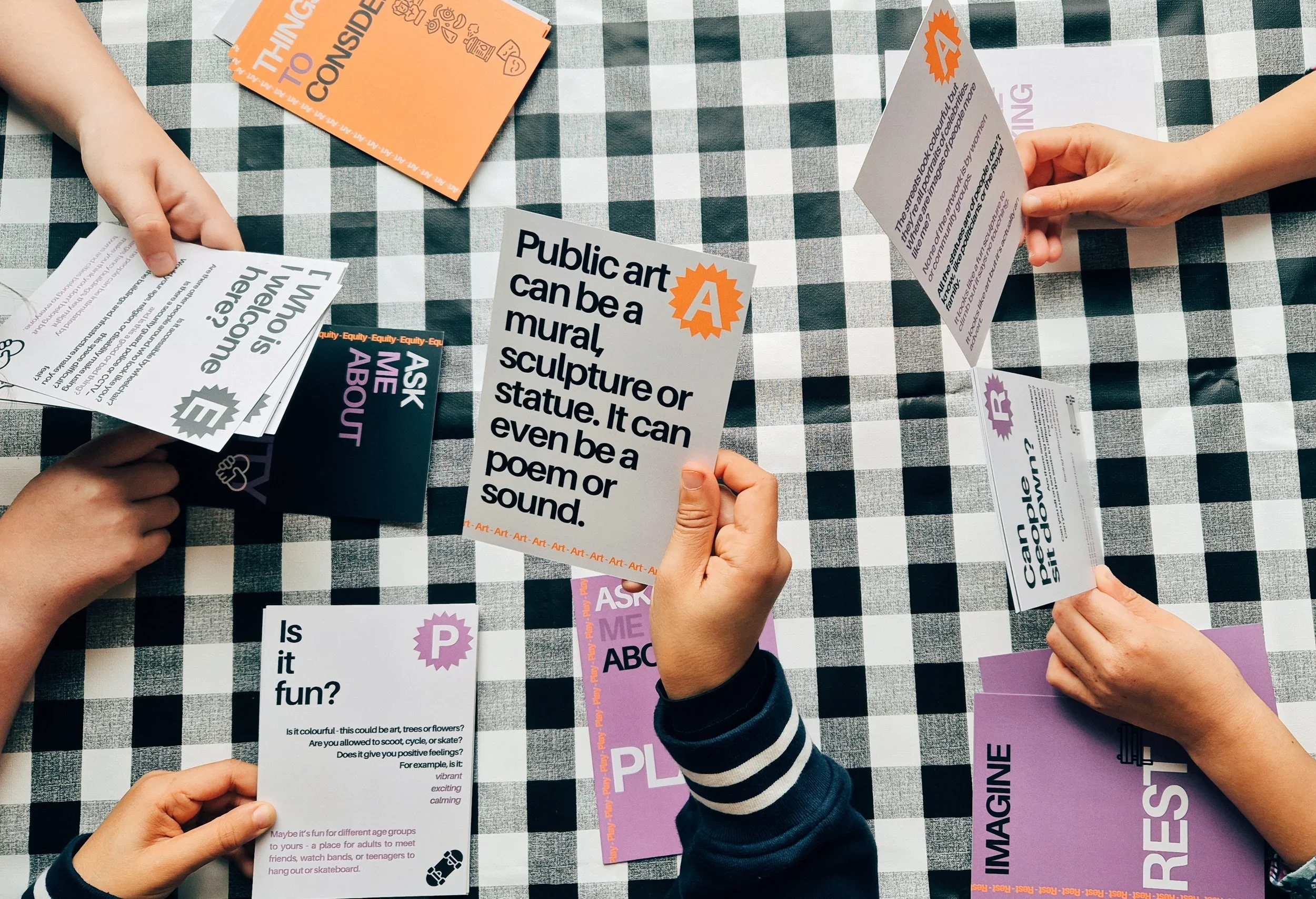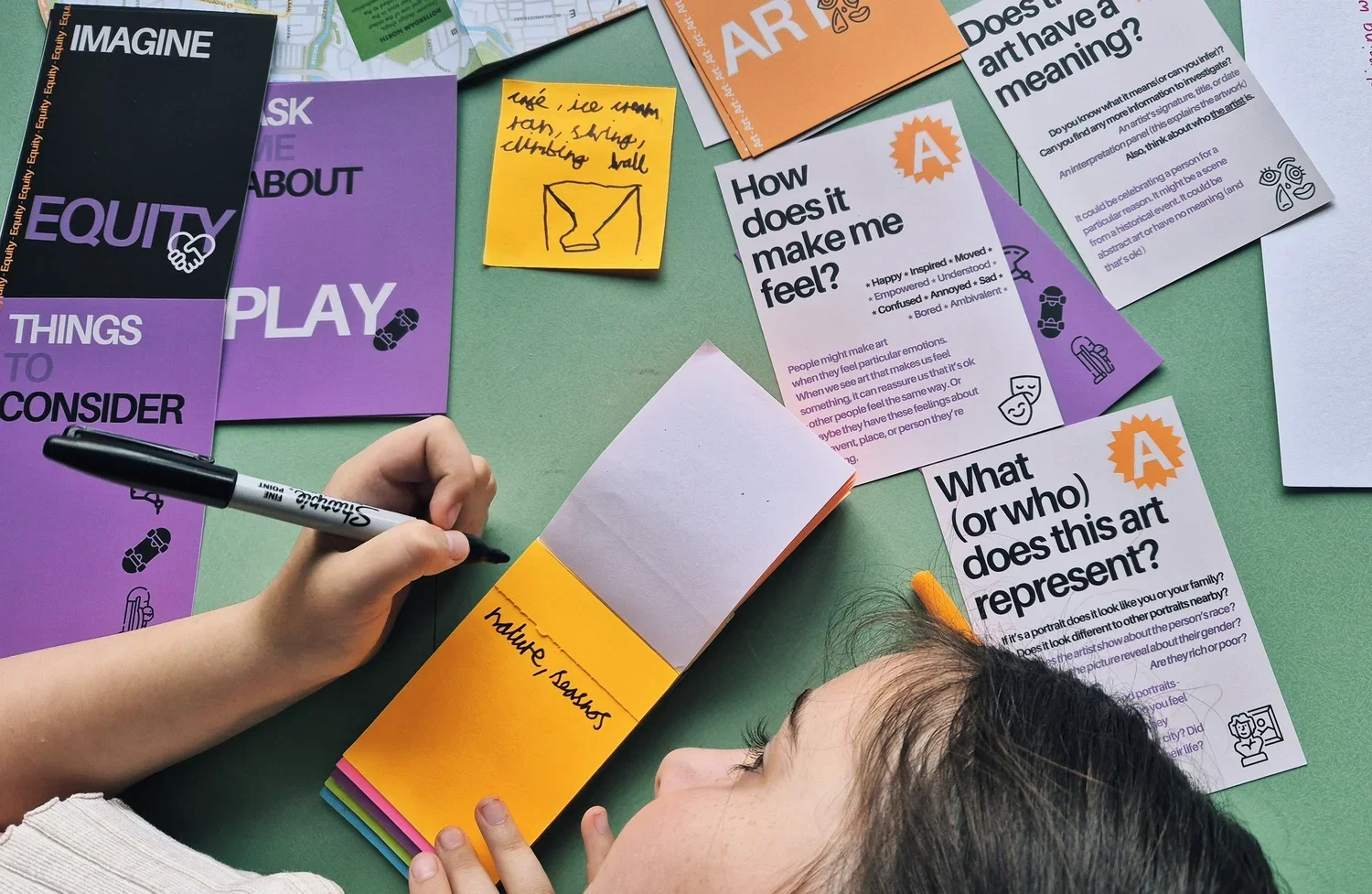Recent work
The Turner Prize at Bradford 2025
Placemaking and visual arts ethical workshop for Our Turn, South Square Centre, and Bradford 2025
Working with South Square Centre, commissioned by Bradford 2025 and in readiness for The Turner Prize’s arrival in the city, we were asked to facilitate a workshop for the newly formed visual arts steering group who would operate as a fringe festival to Bradford 2025.
The session involved learning what placemaking is and how it relates to visual arts, with the second part of the session looking at ethics and equity in public art including working-class output, tackling the concept of consent vs censorship, gender, race, corporate sponsorship or advertising, and deciphering public art reports that don’t face up to artwashing, or clearly define their parameters.
The workshop provided the background needed for the steering group to help develop the group's structure and values and prepare briefs and develop ideas that make room for everyone.
“It was a thought-provoking and challenging look behind the curtain of much public art commissioning”
Workshops are always informal and accessible, and passive creative activities (colouring in, knitting, etc) are catered for and encouraged to create the best environment for comfort, concentration, and a positive environment.
Cultural Navigation for Glenbrook
Developing a cultural and heritage contextual strategy
Working on the proposal for the Northern Quarter’s Church Street/St Paul’s development site, we worked as cultural navigators in providing robust contextual research that would help contribute towards the winning bid.
We developed a cultural and heritage contextual strategy including a vision for new public art, deep community engagement including facilitation of a residents steering group, and encouraged a guardianship scheme for existing onsite sculpture.
Fledglings
Critical thinking tour guide workshops for young people
A Rocking Chair Riot and Skyliner programme. As tour guides for a day, students learn their influence over their environments; from the art we see, the places we play, and the ways we access or dwell in places.
Workshops are split between classroom and walking activities and teach critical-thinking skills for learners aged 7 - 11 (Key Stage 2). They engage children in their surroundings and have them question how the public realm, towns, and cities can work better for them in the future.
With prompts and guidance, children assume the role of tour guide and learn that they can influence their environments; from the art we see, the spaces where we play, and the ways we access or dwell in our cities.
The goal of fledglings is to encourage critical-thinking skills directly relating to towns and cities; and having young people be able to communicate their observations and thoughts - for instance:
How equitable are our places?
How can we change them for the better?
How does the public art here make me feel?
Who is this place for?
Our most recent client is Everyday Wigan. Further info can be found here.
Women, Consent, and Iconography
A lecture in visual art ethics for Social Lites.
The Social Lites (Urmston) commissioned us to deliver a thought-provoking talk inspired by our writings on Banksy and a lack of critical, ethical content about their work. We delved into the world of consent in public art - who chooses what we see, what should we be faced with, and how public art has drifted seismically from its political, and working-class origins.
The evening involved educating an audience on a century of public art and how it relates to or represents women, the second segment of this lecture related the themes to our own practice and how to remain resilient in public realm that still isn’t designed with women in mind.
Rocking Chair Riot intervention at The Whitworth
Whilst not a commission, this piece is dear to our hearts. Inspired by an artwork at Women in Revolt curated by Tate, we addressed the ommission of some vital context when it came to a print of a Reclaim the Night march. Not only was the interpretation lacking any context, but geographically, the touring exhibit were unaware of the site specific connection to the march. We remembered Vera.







